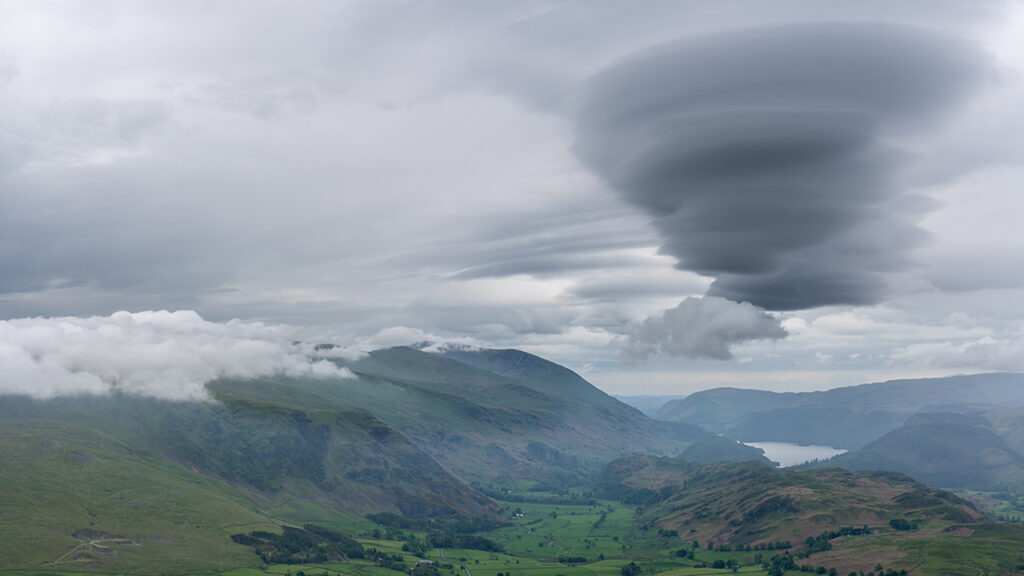
Black History Month 2024: Driving change in atmospheric science
Black History Month, recognised since October 1987, is an important opportunity to discuss the impact of racism and the importance of anti-racist practices in a personal and professional context.
In the UK, black people are part ethnic minority groups. The Office for National Statistics reports that black people represent 4.2% of the population in England and Wales (according to the UK Census 2021).
The Higher Education Statistics Agency informs us that in 2021-22 there were only 70 black science professors (0.6% of the total) – prompting the questions: “Is UK science institutionally racist?” and “What can we do about it?”.
The impact of intersectionality – where a person belongs to more than one minority group or has more than one protected characteristic – is highlighted by the fact that only 10 of those black professors are women.
Structural barriers such as lack of access to resources and mentorship, implicit bias and discrimination, and cultural stereotypes and norms can deter women, especially black women, from pursuing careers in science, technology, engineering, and mathematics (STEM).
The 2023 Diversity and Inclusion in STEM report from the UK Parliament highlights that STEM opportunities have not been equally distributed. In STEM employment this has led to under-representation of women, people from certain ethnic backgrounds, people with disabilities, those from disadvantaged socio-economic backgrounds and those who declared themselves as being LGBTQ+. The lack of data on this issue results from the absence of a UK-wide, sector-wide or enforceable method for collecting information on the demographics of people working in STEM.
Nurturing diversity at NCAS
At the National Centre for Atmospheric Science (NCAS) we recognise that environmental research in the UK – including the atmospheric science community – is not sufficiently diverse.
In 2024, 100 people in our staff community took part in an anonymous survey that tracked different types of diversity. We asked our staff: “Do you consider yourself to be from a minority, cultural, or ethnic group?”. Of the people who responded, 84% said no, 14% said yes, and 2% preferred not to say.
We are taking steps to actively nurture equality, diversity, and inclusion.
We launched our Community for Change in 2021, which aims to create a lively network of colleagues working to make environmental science more accessible for everyone. We now have nearly 40% of our staff participating in the NCAS Community for Change. The , with the majority of the members (over 94%) having completed Active Bystander training, which equips , equipping them with the tools to tackle micro-aggressions and harassment in the workplace.
NCAS now offers equality, diversity and inclusion training provided by the Employers Network for Equality and Inclusion. The training is recommended to all NCAS colleagues and is a part of our standardised induction process for our staff. We will be expanding our professional and development provision to include anti-racism training from 2025.
To improve diversity and inclusion in our staff network, we are building upon our approach towards inclusive recruitment. This includes implementing targeted advertising techniques, providing explicit offers of reasonable adjustments for interview candidates, and innovating our interviewing techniques.
And our Equality Diversity and Inclusion Committee are actively involved in staff policy development through focus groups to improve staff support during promotions, training and fieldwork.
Black History Month 2024 – resources and events
We would like to highlight a selection of resources and events taking place throughout Black History Month 2024, and beyond. We hope these will offer our staff some support, and reflection time, for taking responsible steps – as individuals and as a network – towards a more equal, diverse, and inclusive workplace.
- Join the Inclusive Employers webinar on Tuesday 22 October at 2pm: Black History Month: Remembrance, Recognition, and Black Resistance.
- Join the enei panel event on Thursday 17 October at 12pm: Reclaiming Narratives: Empowering Black Voices Through ERGs.
- Watch William Kamkwamba’s TED Talk on how, at age 14, he built a windmill to power his family’s home, and how invention changed his life. A film on the same subject, The Boy Who Harnessed the Wind, is available to watch now on Netflix.
- Read and share Grandma’s Footsteps, an online short story about air pollution for 7-11 year olds. NCAS co-produced the story with writer Patrice Lawrence and illustrator and art therapist Amara Lawrence (who are two Black British women), Beckfoot Heaton Primary School in Bradford, and Magpie – a good cause campaign agency.
- Check out 10 ways to be an ally to black LGBT people.
- Find out about 7 notable Black British women in science and 6 Black British Pioneers of STEM.
- Follow Black Women in Science and Black In Environment on social media.
Use the Black History Month 2024 website to find out about events happening near you and all over the country.
